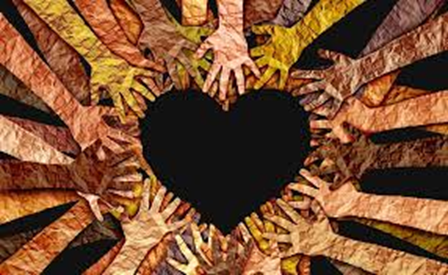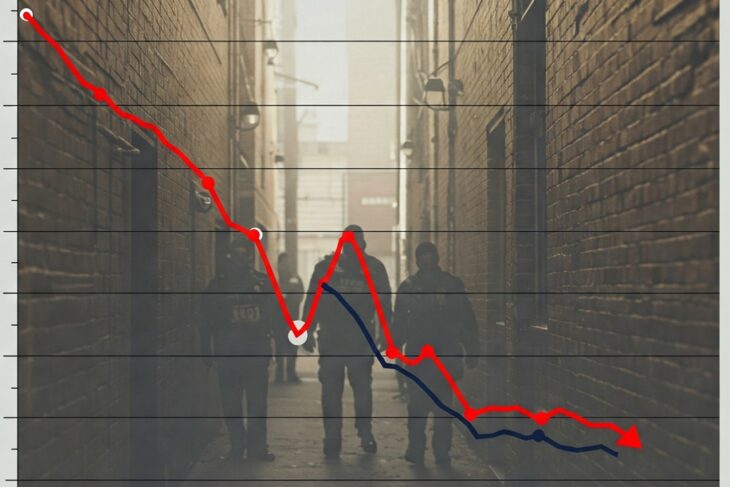This writer has been hearing much talk about reparations with respect to African Slavery in the media in recent years. As a son of the survivors of European colonialism and of chattel servitude he is not, in principle, against the idea. His innate, acute, implacable and indefatigable sense of justice desires them to come to fruition. However, his ideas of what reparations should look like have been deeply confused and severely stymied by a multiplicity of conflicting view-points. Some within the African Diaspora have issued the unequivocal call for reparations; some oppose the notion citing it as unattainable and impractical; others are either indifferent to or wholly ignorant of the idea of reparations entirely, being deeply preoccupied with the exigencies of life as they are experiencing them now. These perspectives have served to dissuade this writer from attempting to offer any comments on the matter, so much so that even as he pens this op-ed he does so with intellectual trepidation and a deep sense of weariness.
Whether paralysis or avoidance, this writer’s response is most likely due to being completely overawed by the sheer magnitude of the crime in question, and the innumerable associated dimensions of human atrocities and misery including the incalculable loss of life, of limbs and of property; the stain of unspeakable debauchery left on temples of flesh; the profaning of precious souls and the desecration of creative minds; the unbridled and the unhinged exercise of mass exploitation and the wholesale destruction of societies, cultures, political and religious traditions, and economies. Certainly, the crime of African chattel slavery encompassed centuries and perpetrators from various continents, including Africa. All that having been said, allow this writer to posit a few things for your consideration.
If people can agree, in principle, to the necessity for such things as laws of libel, laws of tort, contract laws, criminal laws, crimes against humanity, international laws, to trial courts, courts of appeal and tribunals — then calls with respect to reparations of any kind are not unreasonable. Such demands are quite in order, particularly in the face of proven and well documented acts of criminality. If such a premise meets with the standards of logic and morality, then the rights of any people seeking for reparations should be affirmed at all cost.
That being said, the real challenges faced by such litigants would be centered around the practical out-workings of the processes towards such ends. Where and how do people begin to effectively tackle this colossus?
As with all legal matters, a major hurdle in the process for all plaintiffs would be to take their demands to a competent legal authority. As many calls for reparations are against European nations — would it be prudent for the survivors of the hen-house, so to speak, whose ancestors were caged there, whose eggs and bodies were harvested for food, and whose feathers were used as stuffing for pillows — go before the foxes for redress, before the very ones who established, sustained, protected and profited from everything that went on there? Would the involvement of the foxes in the process not present a conflict of interest? And should they recuse themselves from such proceedings, who would then form the quorum needed to hear, assess and deliver redress? Furthermore, can their jurisprudence and rules of procedure — upon which their court derives its authority and praxis, be trusted in this instance?If the late Guyanese intellectual, professor and political activist, Dr. Walter Rodney, was right about the facts he asserted in his book — How Europe Underdeveloped Africa, then where in all of Europe can the people calling for reparations go for fair impartial hearings?
Some years ago, this writer had the opportunity to visit The National Museum of the American Indian — part of the Smithsonian Institution group of museums and research centers. It was confirmed during the course of the tour that every treaty made between the American Indians and the government of the United States was broken by the latter party. And though Native Americans did manage to eke out damages from the government, one has to wonder to what extent they were shortchanged in the process. Can countries which are so guilty of crimes against humanity achieve a nuanced appreciation for the suffering that they inflicted on their victims, and administer justice with an unbiased sensitivity accordingly?
One of the six principal organs of the United Nations appears to be a step in the right direction. Established in 1945, the International Court of Justice, sometimes known as the World Court, settles disputes between states in accordance with international law, and provides advisory opinions on international issues. The court’s jurisdiction is worldwide, with 193 countries being signatories. Interestingly, the authority of the court is not recognized by the United States. Ironically, emerging from reported war crimes committed against the Ukraine, the United States President recently referred to the President of Russia — a signatory of that very World Court, as a war criminal.
A matter of great concern to this writer, however, is that the World Court deals primarily with issues between countries and not merely between groups of people. This presents barriers for racial and ethnic groups and for other minorities who exist within the geo-political boundaries of countries. What therefore of African-Americans who are descendants of slaves? What of Native-Americans and of other racial and ethnic groups who have experienced human rights violations? They are not recognized as nations but only as subcultures or as enclaves within the jurisdiction of the United States. Does anyone recall the struggle of the people of Tibet with China over the question of the former’s sovereignty? Are there statutes of limitations on the adjudication of crimes that were committed so long ago but which still produce lingering, deleterious effects?
Prospective litigants seeking redress in the matter may be quick to point to stipulations in international law which articulate that:
“[…]infringements of human rights may entail State responsibility whether committed by a State organ or non-State actor but under the control or with the authorization, acquiescence, complicity or acknowledgment of State or governmental authority; or where the non-State actor is empowered by the State to exercise elements of governmental authority; or that a private party commits an act that may impair the enjoyment of human rights, which, in and of itself is not attributable to the State, but where State responsibility may nonetheless be engaged in certain circumstances.”
However, these stipulations appear only to codify the daunting complexity of any approach on the matter of responsibility and accountability, presenting more hindrance than hope. Skeptics could not, for instance, be faulted for doubting the success to be achieved from a suit for reparations brought against Europe by the 14 Caribbean nations — being all independent, sovereign states.
In 1985, Pope John Paul II apologized to Black Africa for the involvement of white Christians in the slave trade. In 2020, both the Church of England and the Bank of England also apologized for the parts that they played. Just recently, Harvard University offered an apology for the part that it played in slavery and put up $100,000,000 dollars for scholars and students to study its connection to slavery. Can you imagine that? The institution chose to avoid talks on reparations. All that being said, should non-governmental entities — religious, educational, financial or otherwise within nations be allowed to set the tone and tenor of discussions on reparations, and to determine the amounts and the purposes for monies to be paid in that respect? So much for a unified and a judicious handling of this affair.
And let us look, legally, at prospective damages in respect to African Slavery. One dictionary defines the word ‘reparation’ as: ‘the making of amends for a wrong one has done, by paying money to or otherwise helping those who have been wronged’. Perhaps this writer is misinformed or has been misinterpreting what he has been hearing and reading on the matter, given that every clarion call for reparations appears to always connote something monetary and material. But, can reparations in that regard serve as a panacea for every act of atrocity which included plunder, bloodshed, rape, murder, privation, starvation, torture, dismemberment, kidnapping and enslavement? Tell that to the white racists in the Jim Crow South who saw the lynching of black people and of any who came to their aid as the only solution for the perceived wrongs committed against whites? They would hear nothing of civil damages, unless they were granted in tandem with capital punishment. Are people of color not legally entitled to such justice — perhaps even more so?
In emphasizing material, financial reparations are we unwittingly, again, placing our ancestors on the auction block of chattel slavery and putting a price tag on their lives? How much is enough? This writer not only believes this to be a fair question which covers the rights of the prospective plaintiffs in the case but also those of the defendants. Being able to answer such questions in respect to all the parties concerned would be justice, would it not? Countries have gone to war with other countries over less than what black people have suffered. Does anyone remember the assassination of The Archduke Ferdinand and his wife and how that led to World War I? Does anyone remember the American Civil War and the bloodletting that ensued, allegedly, to free the negro and cleanse the American soil of its wretched stain and its fetid smell? Not all breaches can be salved by Tort!
This writer would, most certainly, want to see the honor of his forebears raised from the mire and restored to the pillar of respectability. What then, apart from or in tandem with such punishments requiring the payment of monies, should be used to restore their honor? Perhaps no race has been defamed and eviscerated by the holocaust of chattel slavery more than black people. Justice then, should be singular and urgent. Perhaps, then, our approach towards reparations is too narrow, too limited, too anemic, and too vague. Perhaps, as is evident from the discordant voices on the subject within the Diaspora, we have not thought this thing through as well as we should and that consensus for success is still way off. Again, should not there be an inquest of some sort — with a collection, a collation, and a sage evaluation of all the evidence?
How do we put a price tag on fathers, on mothers, on sons, on daughters, on widows, and on orphans whose skeletons are scattered on the dark, cold seafloor of the Middle Passage? How do we put a price tag on the degradation that they endured on the auction block? How do we put a price tag on hundreds of years of brutality and on the deep and bloody stripes sustained from the tendrils of the whip? How do we put a price tag on the rape of our women with impunity and on the breeding of our people like cattle for profit? How do we put a price tag on the fragmentation of families, on the separation of babies from the breasts of their wailing mothers — thrust beyond the sights and the sounds of memory? How do we but a price tag on genocide?
This writer does not have the answers. Still, hopefully, his questions might give rise to new perspectives leading to more pragmatic and efficacious outcomes.
As European nations ruled in favor of reparations for planters who had lost slaves upon the abolition of slavery, seeing them as reasonable then, that logic ought not to be suspended in respect to the descendants of those slaves, who are now regarded as victims. To reimburse the criminals and to totally deny the victims constitutes a gross inversion of justice and morality. The devil, it is clear, is in the details. Yet, in the meantime, this writer’s heart is still full of hope, though his head hurts — and hurts really bad.



